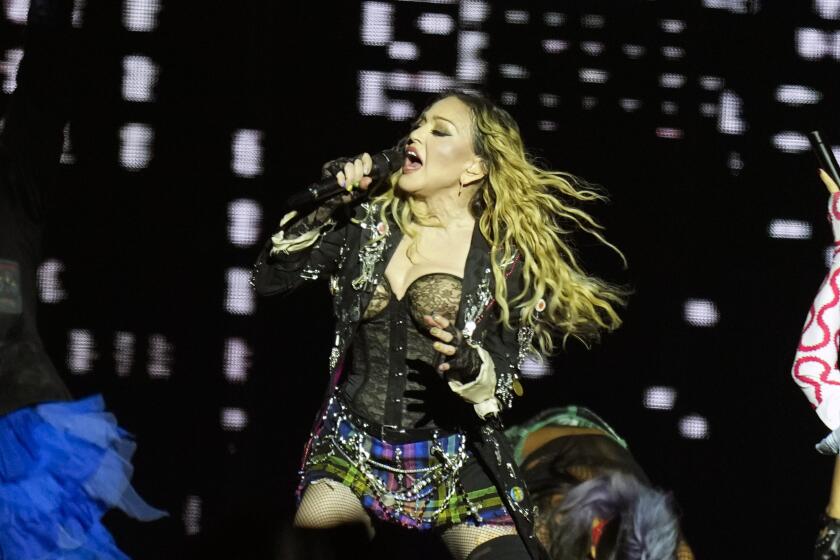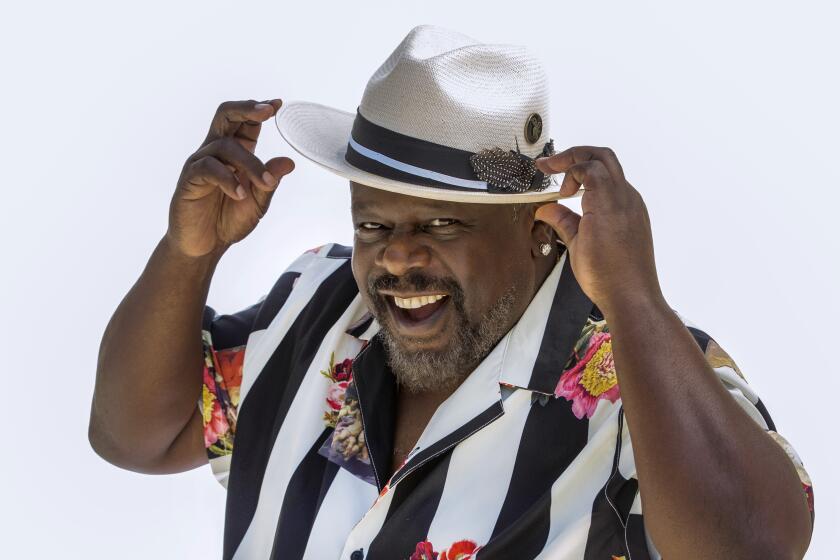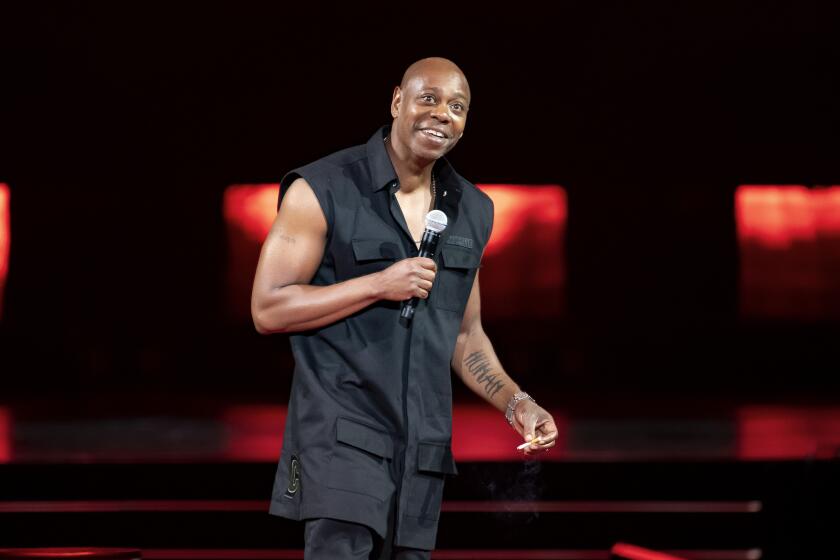Ovitz Case Haunts Disney Board
As Walt Disney Co. directors meet today at the company’s Burbank headquarters to start grappling with the process of replacing Chief Executive Michael Eisner, one man who hasn’t roamed the halls in eight years is casting his shadow over the discussions.
Eisner’s ill-fated decision in 1995 to handpick former super agent Michael Ovitz as the entertainment giant’s president continues to haunt company directors. A shareholder lawsuit scheduled for trial next month in Delaware accuses the Disney board of, among other things, being little more than Eisner’s rubber stamp.
Documents unsealed recently in the Delaware case suggest that when Eisner decided to hire Ovitz as Disney’s president, he did not consult the full board and that a committee of directors spent about 10 minutes reviewing the employment contract before recommending that it be approved. Likewise, when Eisner decided to fire Ovitz after a little more than one year, he negotiated a cash and stock severance package valued at $109 million “without much input or oversight of the board,” according to court papers.
Eisner, who has told directors he’ll leave when his contract expires in September 2006, now is lobbying for Disney President Robert Iger to succeed him and has hinted he might try to stay on as chairman himself.
In an interview last week, current Chairman George J. Mitchell vowed that the board would conduct a far-ranging search. Shareholders and their representatives said in recent interviews that, with the lawsuit moving forward simultaneously with the search for Eisner’s successor, Disney’s board is under even greater pressure to demonstrate its diligence and independence.
“Without a doubt, the lessons from the Ovitz affair loom large in this boardroom, and these board members would do well to exercise the fiercely independent judgments that were apparently so lacking during the hiring and firing of Ovitz,” said Greg Taxin, CEO of Glass Lewis, a proxy advisory firm.
Glass Lewis cited the shareholder suit in advising its investor clients to withhold support for Eisner as a director at Disney’s annual meeting in March. The firm said documents in the case showed that Eisner “failed to respect fully the separation of the company’s interests from his own and those of his friends and personal business partners.” Eisner ended up receiving a stunning no-confidence vote of 45% of shares cast.
Although just two of Disney’s 11 current directors -- Eisner and Gary Wilson -- were on the board when Ovitz was hired, the current members are well aware of the potential image that could result from seeming to defer to Eisner again. It also would undermine Disney’s efforts to persuade shareholders that it practices good corporate governance. And, as the Ovitz affair shows, passive decision making can trigger costly lawsuits and expose the board to potential liability.
“They’ve been well-versed in the fallout from the hiring and firing of Mr. Ovitz,” said Patrick McGurn, senior vice president of Institutional Shareholder Services, a proxy advisory firm. “I’m sure it’s in the back of their minds.”
Disney directors are expected to accelerate their search for a new CEO at their board meeting, which concludes Tuesday. That could include informally reviewing prospects, setting candidate criteria and tapping an executive search firm. Directors may also discuss setting a timetable for Eisner’s departure, and whether he should remain on the board in retirement.
Still another potential move that could shape the CEO search is adding more directors. Disney is expected to soon add one independent seat, although a group of pension funds wants the company to add more. Representatives met with Mitchell on Friday, proposing such names as former Securities and Exchange Commission Chairman Richard Breeden and television mogul Haim Saban.
Shareholders sued Disney in 1997 over the Ovitz affair. Disney and its directors are accused of failing to watch out for shareholder interests, leading to the squandering of company assets when Ovitz received his rich severance deal.
The lawsuit is set for trial on Oct. 18 in Delaware Chancery Court. Eisner, Disney directors and Ovitz all say they acted appropriately and call the allegations meritless.
Still, the case file has included a number of embarrassing internal documents, including one in which Eisner acknowledged that he knew he had made a mistake just five weeks after Ovitz started. Other documents disclosed that Ovitz had burned through $6 million in company funds, including $2 million to remodel his office and nearly $100,000 for Los Angeles Lakers tickets.
“The Ovitz case represented a willingness by Chairman Eisner to do as he pleased,” said North Carolina Treasurer Richard Moore, whose state retirement system owns about 3 million shares of Disney stock. “It’s time for the board to move forward in a new and independent way.”
More to Read
The biggest entertainment stories
Get our big stories about Hollywood, film, television, music, arts, culture and more right in your inbox as soon as they publish.
You may occasionally receive promotional content from the Los Angeles Times.







